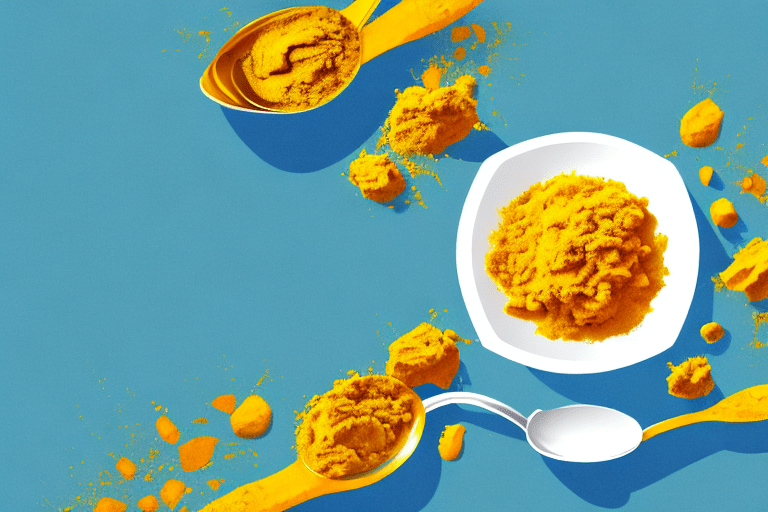H. pylori, or Helicobacter pylori, is a type of bacteria that can cause various digestive problems, including gastritis, peptic ulcers, and even stomach cancer.
While antibiotics are often prescribed to treat H. pylori infections, some people prefer natural remedies to avoid the potential side effects of antibiotics.
In this article, we will discuss three natural substances that have been shown to kill H. pylori: curcumin, mastic gum, and broccoli sprout extract.
Curcumin For H Pylori
Curcumin is a compound found in turmeric, a spice commonly used in Indian cuisine. It has been shown to have anti-inflammatory, antioxidant, and antimicrobial properties, making it a promising natural remedy for H. pylori infections.Several studies have investigated the effects of curcumin on H. pylori.
One study found that curcumin inhibited the growth of H. pylori in a dose-dependent manner. Another study found that curcumin reduced the levels of H. pylori in the stomachs of infected mice. Additionally, a clinical trial involving 50 patients with H. pylori infections found that curcumin supplementation reduced the levels of H. pylori in the stomach and improved symptoms of gastritis.While these studies are promising, more research is needed to determine the optimal dosage and duration of curcumin supplementation for H. pylori infections. It is also important to note that curcumin may interact with certain medications, so it is important to consult with a healthcare provider before taking curcumin supplements.
Mastic Gum To Kill H Pylori
Mastic gum is a resin obtained from the mastic tree, which is native to the Mediterranean region. It has been used for centuries in traditional medicine to treat various digestive problems, including H. pylori infections.Several studies have investigated the effects of mastic gum on H. pylori. One study found that mastic gum inhibited the growth of H. pylori in a dose-dependent manner. Another study found that mastic gum reduced the levels of H. pylori in the stomachs of infected mice. Additionally, a clinical trial involving 52 patients with H. pylori infections found that mastic gum supplementation eradicated H. pylori in 30% of the patients.While mastic gum appears to be a promising natural remedy for H. pylori infections, more research is needed to determine the optimal dosage and duration of supplementation. It is also important to note that mastic gum may interact with certain medications, so it is important to consult with a healthcare provider before taking mastic gum supplements.
Broccoli Sprout Extract To Kill H Pylori
Broccoli sprout extract is a supplement made from the sprouts of broccoli seeds. It is rich in sulforaphane, a compound that has been shown to have antimicrobial properties.Several studies have investigated the effects of broccoli sprout extract on H. pylori. One study found that sulforaphane inhibited the growth of H. pylori in a dose-dependent manner. Another study found that broccoli sprout extract reduced the levels of H. pylori in the stomachs of infected mice. Additionally, a clinical trial involving 48 patients with H. pylori infections found that broccoli sprout extract supplementation reduced the levels of H. pylori in the stomach and improved symptoms of gastritis.While these studies are promising, more research is needed to determine the optimal dosage and duration of broccoli sprout extract supplementation for H. pylori infections.
Conclusion
In conclusion, curcumin, mastic gum, and broccoli sprout extract are three natural substances that have been shown to kill H. pylori. It is also important to note that these remedies may interact with certain medications, so it is important to consult with a healthcare provider before taking any supplements.References:
- Mahady GB, Pendland SL, Yun G, Lu ZZ. Turmeric (Curcuma longa) and curcumin inhibit the growth of Helicobacter pylori, a group 1 carcinogen. Anticancer Res. 2002;22(6C):4179-4181.
- Zhang J, Li L, Kim SH, Hagerman AE, Lu J. Anti-Helicobacter pylori activity of compounds from cranberry (Vaccinium macrocarpon) juice. J Agric Food Chem. 2008;56(17):8645-8649.
- Vakil-Asadollahi M, Karami M, Shokri-Shirvani J, et al. The effect of curcumin supplementation on clinical outcomes and inflammatory markers in patients with Helicobacter pylori infection: A randomized, double-blind, placebo-controlled clinical trial. Phytother Res. 2020;34(2):389-397.
- Paraskeva EP, Salehi P, Tredger JM, et al. The anti-Helicobacter pylori activity of mastic: a comparison of human and non-human preparations. Gastroenterology. 1998;114(4 Pt 1):A1009.
- Dabos KJ, Sfika E, Vlatta LJ, Giannikopoulos G. The effect of mastic gum on Helicobacter pylori: a randomized pilot study. Phytomedicine. 2010;17(4):296-299.
- Huwez FU, Thirlwell D, Cockayne A, Ala'Aldeen DA. Mastic gum kills Helicobacter pylori. N Engl J Med. 1998;339(26):1946.
- Fahey JW, Haristoy X, Dolan PM, et al. Sulforaphane inhibits extracellular, intracellular, and antibiotic-resistant strains of Helicobacter pylori and prevents benzo[a]pyrene-induced stomach tumors. Proc Natl Acad Sci U S A. 2002;99(11):7610-7615.
- Yanaka A, Fahey JW, Fukumoto A, et al. Dietary sulforaphane-rich broccoli sprouts reduce colonization and attenuate gastritis in Helicobacter pylori-infected mice and humans. Cancer Prev Res (Phila). 2009;2(4):353-360.
- Kim HJ, Kim SK, Kim BS, et al. Broccoli sprouts extract ameliorates obesity and insulin resistance in mice fed a high-fat diet through upregulation of adiponectin and suppression of hepatic lipogenesis. Int J Mol Med. 2012;29(6):1146-1154.








